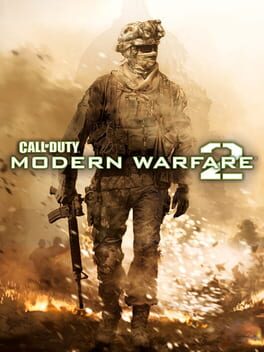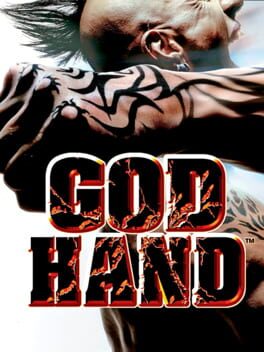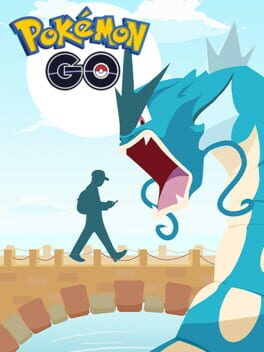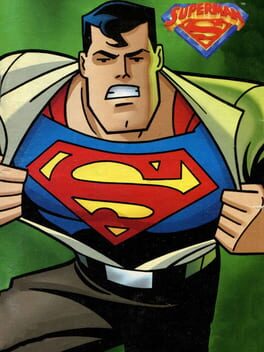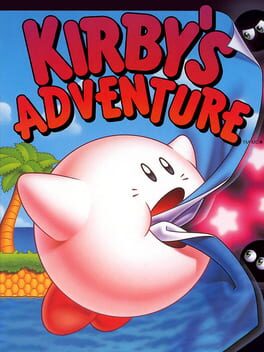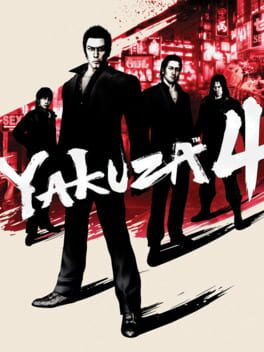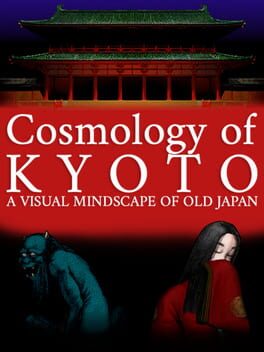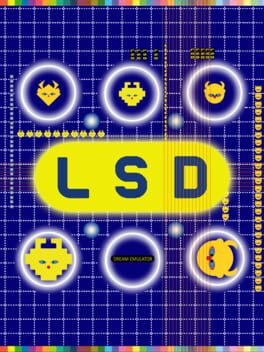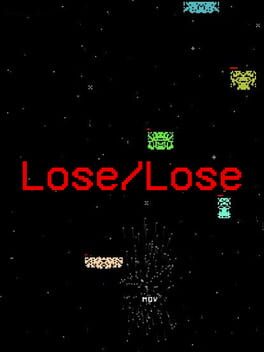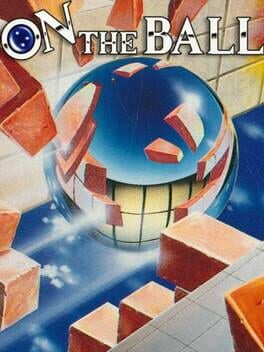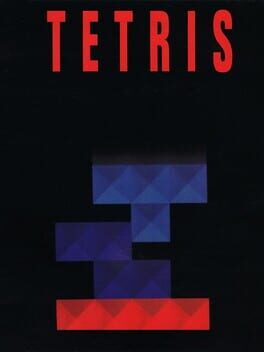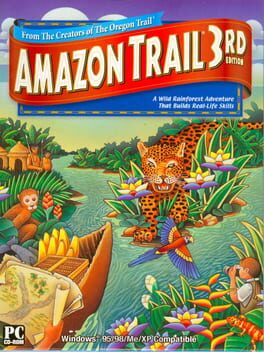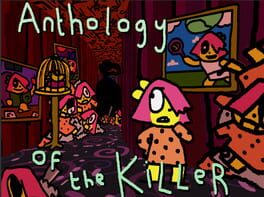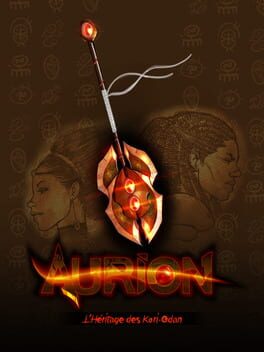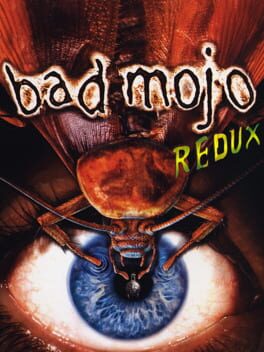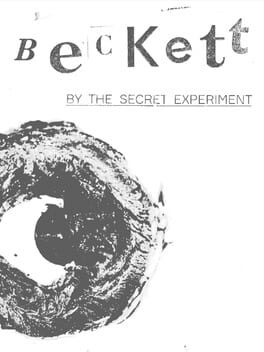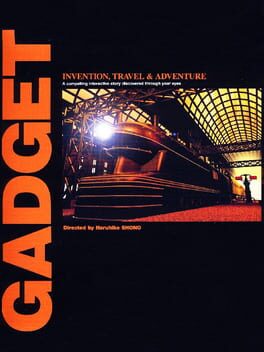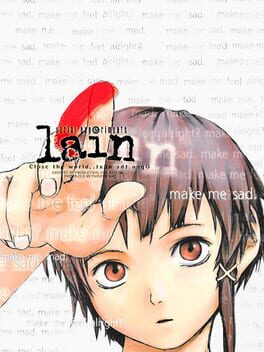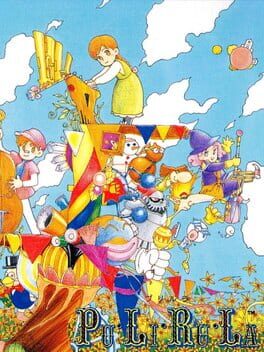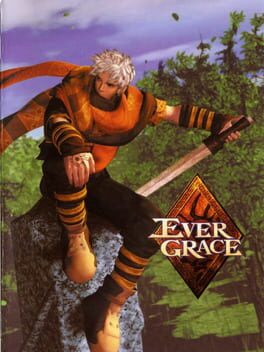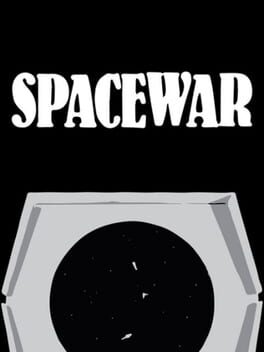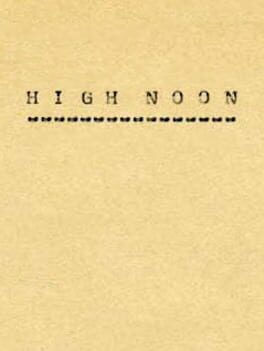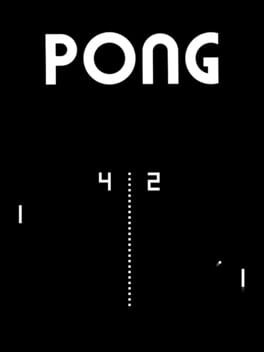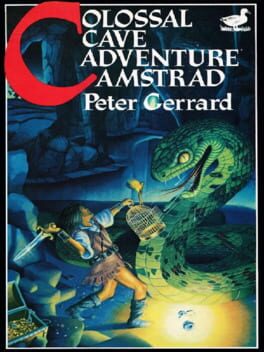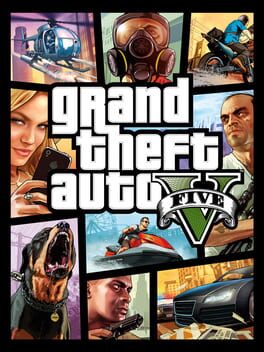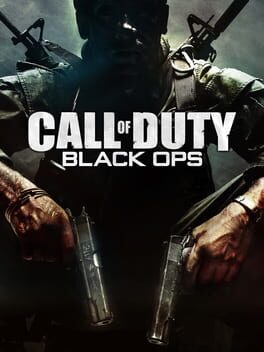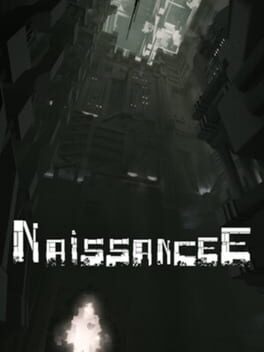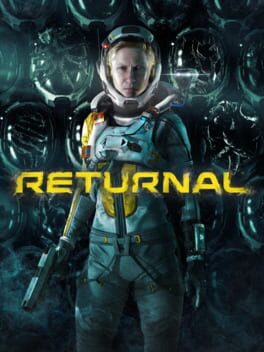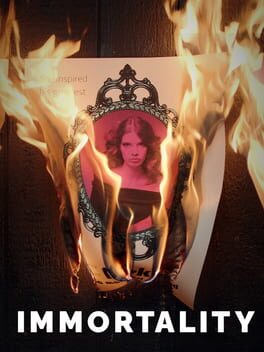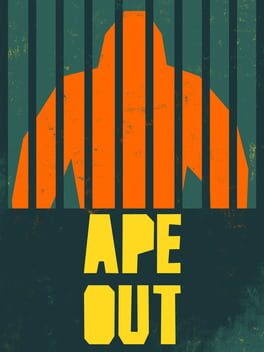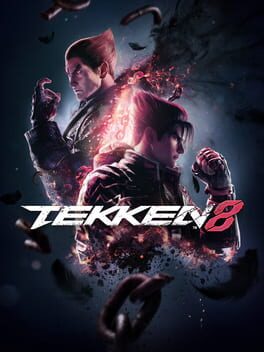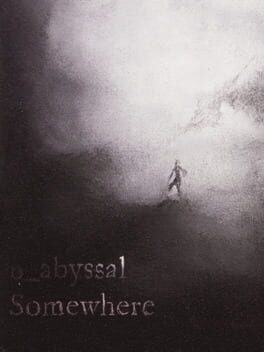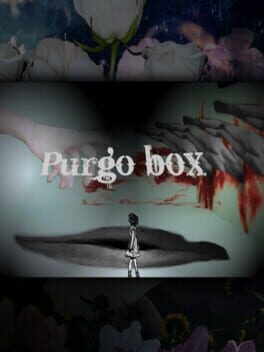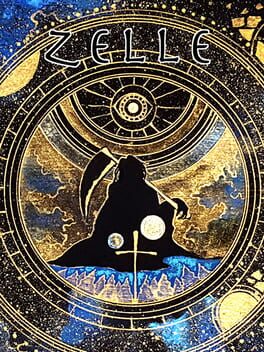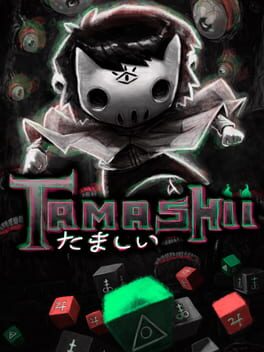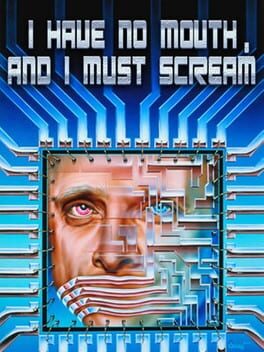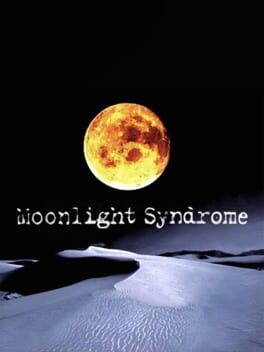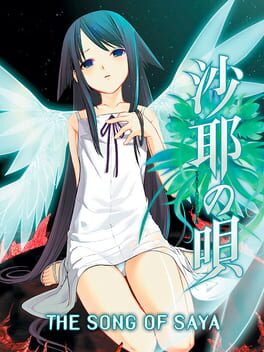Xliquidswordz
19 reviews liked by Xliquidswordz
Super Mario Bros.
1985
Everyone knows mario is cool as fuck. But who knows what he's thinking? Who knows why he's crushes turtles? And why do we think so fondly as we think of the mythical (nonexistent) Dr Pepper? Perchance.
I believe it was Kant who said "Experience without theory is blind, but theory without experience is mere intellectual play." Mario exhibits experience by crushing turts all day, but he exhibits theory by stating "Let's-a go" Keep it up, baby!
When Mario leaves his place of safety to stomp a tutry, he knows that he may Die. And yet, for a man who can purchase lives with money, a life a mere store of value, A tax that can be paid for, much as a rich man feels any law with a fine is a price. We think of Mario as a hero, but he is simply a one-percenter of a more privileged variety. The lifekind. Perchance.
I believe it was Kant who said "Experience without theory is blind, but theory without experience is mere intellectual play." Mario exhibits experience by crushing turts all day, but he exhibits theory by stating "Let's-a go" Keep it up, baby!
When Mario leaves his place of safety to stomp a tutry, he knows that he may Die. And yet, for a man who can purchase lives with money, a life a mere store of value, A tax that can be paid for, much as a rich man feels any law with a fine is a price. We think of Mario as a hero, but he is simply a one-percenter of a more privileged variety. The lifekind. Perchance.
God Hand
2006
On a random day in 2005, after binging a few Quentin Tarantino flicks and a couple of Fist of the North Star chapters, Shinji Mikami looked at his masterpiece that was Resident Evil 4 and said "What if RE4 but Kenshiro and Tarrantino fr" and God Hand was born (This is my headcannon).
God Hand was a game I was ready to drop in the first 2 - 3 hours of playing as I was struggling with some of the earlier bosses and didn't wanna give myself an aneurysm while barely making it out of every fight that I've died to multiple times. But then I looked at the huge following this game had and saw all the singing praises, and I wanted to be a part of that camp too. So I decided I wasn't gonna be a little bitch boy and try to properly figure out how this game works.
When the game clicks, it finally CLICKS and you feel like a boxing god (intentional with the title?), but at the same time no matter how good you get the game will just get harder thanks to it's dyanamic difficulty system, just one of the mechanics borrowed from RE4. Unless you spend a good chunk of your life playing this game, it will remain challening no matter what. This is honestly, quite one of the hardest games I have ever played. Keep in mind though the game is also one of the fairest games I have ever played. I don't think I've ever died once thinking it was the games fault. Everything done by the enemy is clearly telegraphed and you are given a window to deal with it in multiple ways. And when you die, the checkpoints are mostly frequent bar a few exceptions, and it's generous enough to give you all of your health back when you die.
In regards to fairness and difficulty, the way it's hanlded here makes you not wanna put the controller down because as opposed to other what is considered to be "hard" games like Souls games, while challenging, are pretty punishing usually sending you back a bit if you die at a bossfight, and at the risk of losing some of the experience you gained. God Hand is hard hard in the sense where you need good reflexes and awareness for every single fight, but also very fair because of it's generous checkpoints. In a souls game, there are plenty of ways to cheese things if you're at a wall, but here you cannot cheese at all. It's just you and your skill, and you aren't getting past a point until you get better. Best way to put it, this is a discipline simulator.
When this game was initially released, the game was mostly overlooked by critics due to the criticism of the combat not being robust. This is far from the truth about the combat and to put it, God Hand's combat was way ahead of this time. What we have now as modern God Of War over the shoulder combat, which has endless praise from critics, was clearly inspired by God Hand. Similar to Resident Evil 4, God Hand employs the same control scheme where it is an over the shoulder tank controlling game, with not much control over the camera. This was highly ambitious for an action game back in the day, where action games were mostly 3rd camera-pulled-away types of games. It works really well in God Hand as the right stick is now used as it's dodging system, which is implemented insanley well.
God Hand is not an offensive based game where it's about pulling the best combos you can. In fact, there really aren't much button combos here.. 90% of the time you will be just mashing the square button to the tune of your preset combo. God Hand's gameplay is mainly defense and crowd control focused. 1 on 1 fights are pretty straight forward and purley defense focused. In these fights you are dodging attacks and retaliating when there is a window of opportunity, wheras if you put more than one enemy in a fight, the strategy has suddenly changed and it's about positioning yourself in a way where you don't get blindsided or stockpiled. Crowd fights are more about putting yourself in a position where you can get into a 1 on 1 with a enemy for a moment, before going back to controlliing the crowd again. Once the game systems click, you will be dodging and taking out baddies one by one like a champ.
The game isn't perfect, there were moments that kinda sucked for me, like that one section with the big claw machine. Moments like these are few and far between, but when they come it kills the momentum you have.
Apart from the gameplay, the setting and style reminds you of a Quentin Tarantino movie which brings immesne charm to the whole package. There are so many goofy cheeky moments that bring a laugh out of you in between all the chaos, it makes getting through the hard moments so much more worth it just to see these goofy scenes.
By the end of the game I felt like I had just conquered a mountain. Despite at the beggining feeling like this is game I probably couldn't finish, I made it to the end and had so much fun while doing it. I am now apart of the God Hand cult and "I love it".
God Hand was a game I was ready to drop in the first 2 - 3 hours of playing as I was struggling with some of the earlier bosses and didn't wanna give myself an aneurysm while barely making it out of every fight that I've died to multiple times. But then I looked at the huge following this game had and saw all the singing praises, and I wanted to be a part of that camp too. So I decided I wasn't gonna be a little bitch boy and try to properly figure out how this game works.
When the game clicks, it finally CLICKS and you feel like a boxing god (intentional with the title?), but at the same time no matter how good you get the game will just get harder thanks to it's dyanamic difficulty system, just one of the mechanics borrowed from RE4. Unless you spend a good chunk of your life playing this game, it will remain challening no matter what. This is honestly, quite one of the hardest games I have ever played. Keep in mind though the game is also one of the fairest games I have ever played. I don't think I've ever died once thinking it was the games fault. Everything done by the enemy is clearly telegraphed and you are given a window to deal with it in multiple ways. And when you die, the checkpoints are mostly frequent bar a few exceptions, and it's generous enough to give you all of your health back when you die.
In regards to fairness and difficulty, the way it's hanlded here makes you not wanna put the controller down because as opposed to other what is considered to be "hard" games like Souls games, while challenging, are pretty punishing usually sending you back a bit if you die at a bossfight, and at the risk of losing some of the experience you gained. God Hand is hard hard in the sense where you need good reflexes and awareness for every single fight, but also very fair because of it's generous checkpoints. In a souls game, there are plenty of ways to cheese things if you're at a wall, but here you cannot cheese at all. It's just you and your skill, and you aren't getting past a point until you get better. Best way to put it, this is a discipline simulator.
When this game was initially released, the game was mostly overlooked by critics due to the criticism of the combat not being robust. This is far from the truth about the combat and to put it, God Hand's combat was way ahead of this time. What we have now as modern God Of War over the shoulder combat, which has endless praise from critics, was clearly inspired by God Hand. Similar to Resident Evil 4, God Hand employs the same control scheme where it is an over the shoulder tank controlling game, with not much control over the camera. This was highly ambitious for an action game back in the day, where action games were mostly 3rd camera-pulled-away types of games. It works really well in God Hand as the right stick is now used as it's dodging system, which is implemented insanley well.
God Hand is not an offensive based game where it's about pulling the best combos you can. In fact, there really aren't much button combos here.. 90% of the time you will be just mashing the square button to the tune of your preset combo. God Hand's gameplay is mainly defense and crowd control focused. 1 on 1 fights are pretty straight forward and purley defense focused. In these fights you are dodging attacks and retaliating when there is a window of opportunity, wheras if you put more than one enemy in a fight, the strategy has suddenly changed and it's about positioning yourself in a way where you don't get blindsided or stockpiled. Crowd fights are more about putting yourself in a position where you can get into a 1 on 1 with a enemy for a moment, before going back to controlliing the crowd again. Once the game systems click, you will be dodging and taking out baddies one by one like a champ.
The game isn't perfect, there were moments that kinda sucked for me, like that one section with the big claw machine. Moments like these are few and far between, but when they come it kills the momentum you have.
Apart from the gameplay, the setting and style reminds you of a Quentin Tarantino movie which brings immesne charm to the whole package. There are so many goofy cheeky moments that bring a laugh out of you in between all the chaos, it makes getting through the hard moments so much more worth it just to see these goofy scenes.
By the end of the game I felt like I had just conquered a mountain. Despite at the beggining feeling like this is game I probably couldn't finish, I made it to the end and had so much fun while doing it. I am now apart of the God Hand cult and "I love it".
Yakuza is a series that never fails to keep me invested and playing. I love it. I played all the minigames, did all the quests, completed the game as much as you can without doing new game+. And I still wanted more. It was hard to leave the series after cramming Yakuza down my throat all of December and January.
Pokémon Go
2016
I work in a coffee shop in San Francisco and there was a big gaming tech convention recently. Some dudes with lanyards from Niantic came in and ordered a cold brew or something and I was like oh yeah, you’re the Pokémon Go guys, right? They didn’t know what I meant at first and then said oh yeah, that game from years ago. I told them I have a few friends that still play it and it shocked them to their very core, as if I had told them I remembered something incredibly embarrassing they did at a college party. “But… WHY?!”
I had the authentic Superman 64 experience as a kid, but I was new enough to video games that I blamed most of its faults on myself. I thought I just wasn't good enough to get the rings. I wanted so badly to play this game that over and over, while the time limit for the rings ticked down, I would fly down, pick up a car, and throw it, desperate to squeeze out some enjoyment before Lex Luthor laughed at my dumb ass again. Perhaps the most abusive relationship I've had with a piece of software
Kirby's Adventure
1993
Yakuza 4
2010
This review contains spoilers
There are moments in Yakuza 4 where I think it’s the best game in the series and there are moments where I think it’s complete trash. This isn’t an experience unique to this game; if any one statement encapsulates my feelings about Like A Dragon as a series it’s that it’s a land of contrasts, often offering up genuinely fun, exciting melodrama and deeply charismatic characters with one hand while it bops you on the ear with puddle deep (sometimes offensive) political commentary and bloated, meandering mysteries with the other. Something that seems ludicrous to observe now in 2023, when we’re expecting not one but three brand new games or remakes starring Kazuma Kiryu in the next two years is that Yakuza 3 felt like an ending for him. He got out, he made a life, he resolved all his shit, he solved the biggest possible problem not only for his former clan and his new family but also the literal country of Japan lol. And Yakuza 4 makes good on this! It’s at most an epilogue for Kiryu, who is barely in this game at all, being sent off into the proverbial sunset with a feeling of finality in a game that very consciously echoes all three of its predecessors constantly. It certainly inherits everything that consistently sucks about every one of these games and comes up with some new problems all its own, but when the highs hit they hit fuckin hard dude.
Yakuza FOUR. FOUR guys. FOUR chapters AND a finale that is just as long as the other shh shut the fuck up. FOUR stories sort of. FOUR fighting styles. It’s a big explosion in scope compared to what’s come before, and even though on the surface everyone has less to do and fewer options and their bits are all very short, there’s still a lot of thought put into each of these characters and how they interact with the world. Even though each individual part feels truncated this still ended up being my longest overall playtime of the first four games.
Thoughtful might be the word I would use to describe the game at large, which surprised me, because as I’ve mentioned here already and in previous writing about Yakuza 3 I think these games are often obvious to the point of getting in their own way. But we can break it down a bit. Like, the order of the characters’ chapters clearly wasn’t arranged arbitrarily in the scenario planning. Carefree moneylender Akiyama going first makes the most sense in terms of the narrative because he has little personal connection to it but bit personal connection to the established ecosystem of Kamurocho; he eases us back into the familiar setting through a new perspective so it makes sense to see that post-kiryu world via the guy who is most and least similar to Kiryu. He is like Kiryu in that he plays similarly; not mechanically but philosophically, he’s way less technical than the other two new guys, much easier to simply press buttons and win fights. He is personality-wise almost Kiryu’s polar opposite but that makes it more ironic when his part almost plays out early chapters of Yakuza 1 again in miniature, with the inciting Yakuza shooting, the mysterious woman, the suitcase full of money. There is also, of course, the fact that he wouldn’t be here at all if not for the ending of Yakuza 1, where the 10 billion yen exploding from the top of the Millennium Tower gave him the chance to pull him out of poverty. As the game goes on Akiyama’s past is more directly connected to both the events of this game and the events of previous ones than he realizes, but that’s kind of all he’s got; he’s on the margins of this story to the degree that the crush he develops on the main female character being treated as equally worthy of grief to her brother’s when she dies towards the end is actually kind of insulting lol.
With Akiyama having set the stage the two middle chapters are given over to Saejima and Tanimura, who are the characters who actually emotionally anchor this story on the heroes’ side. The game really tries hard to make it about All Four Boys and have Four Bad Guys To Punch at the end but truly this is Saejima and Tanimura’s game, as the entire plot revolves around their pasts, their histories, and how events that shaped them in the 1980s continue to harm people in 2010. They also pair nicely in other ways. Each of them are in a way outsiders in Kamurocho, Saejima quite literally because he’s been away for 25 years (him having a unique dialogue about how things have changed every time you enter a building for the first time is a wonderful touch) and Tanimura because he’s one of the many ethnic minorities of people who come from or are descended from people who come from mainland Asia, most of whom live together in poverty in a small neighborhood-within-a-neighborhood in Kamurocho. They’ve both got more technical playstyles too. I think Saejima ultimately makes it out of the game better off, largely because his chapter comes first and isn’t as burdened as Tanimura’s is by being almost entirely plot-based, and I also think Tanimura’s playstyle just doesn’t fit the rhythms of yakuza’s combat very well, but they’re both great characters who add strongly to Yakuza 4’s central thesis of breaking cycles of historical harm (along with lots of other smaller ideas that this game is chock full of and much messier with).
Finally then there’s Kiryu, who largely comes in at the end of the game like a steamroller to charge in and save the day, except in Yakuza 4 there is a distinct and incredible sense that he has simply done all of this before. Kiryu is to some degree going through the motions. There isn’t a scheme or type of guy in this game that Kiryu has not already done a version of. Once you’re taking down CIA-backed International Arms Smuggling Rings there’s not really anywhere left to go right? But it’s also not old hat for him; he doesn’t do a better job, he fucks up in basically the exact same ways he fucks up every time, and people tell him so. When he tells one of the villains that he Won’t Let Him Get Away With This that guy replies something like “you won’t stop me, you’re always too late. That’s why these things happen.” and it’s sick as hell. Kiryu’s final boss is both an acknowledgment and a failure and his ending is extremely dark. He finally says out loud what anyone with eyes and ears has known for three games: that making Daigo Dojima the head of the Tojo Clan was an enormous mistake, and leaving yakuza life immediately afterward sealed the Clan’s fate to a slow death. The way he fails though is that his attempt to course correct this is to just kind of beat Daigo up, and rather than find a real solution to the problem he created in Yakuza 2, the last scene of the game indicates that Kiryu is simply back in the life, taking a hands on approach to fixing his mess. It may be a form of responsibility but it’s a sacrifice of the life he’s spent years earning, and he does it with a smile on his face. Kiryu will never get out, and the game is ambiguous about these circumstances so it’s unclear whether he knows it. He’s the only guy in the game who can’t break free, only try to massage his problem back out of sight.
I think this core set of ideas in Yakuza 4 is really strong and in fact I think it’s the first Like A Dragon game where I’ve like actually enjoyed the execution on it. The way the story has to be siloed between four discrete chapters definitely hurts the presentation of the overall mystery and conspiracy composition (this one actually probably falls apart in the last chapter much harder than any of its predecessors, an actively comical series of pileups where literally every villain in the game stabs one of the other ones in the back it’s truly amazing), but this truly is a game about The Boys and also one or two of the Bad Boys and to that end I think it succeeds a lot more than it fails. It is true that Akiyama’s central relationship to his final boss exists entirely off screen, it is true that Saejima’s reunion with his sister, the emotional core of the entire story, happens off screen and they in fact never interact at all unless you count him screaming her name a bunch after she’s been shot, and it’s true that Tanimura’s chapter is so completely overtaken by Plot Machinations that almost all of his actual characterization happens in his substories, but hey, I play all the substories, that’s just the kind of gamer girl you’re reading about. These quibbles amount to quibbles, ultimately, paling in the face of the sheer volume of character-driven shit in the game, almost all of it well-worth the price of admission.
And of course, four characters with four different perspectives on Kamurocho means the side content is a lot more tailored than it’s been before. Everyone gets a really tailored experience, with Akiyama’s shit revolving mostly around his two businesses and giving you insight into what his day to day life might look like when he’s not accidentally embroiling himself in vast criminal conspiracies. Saejima has the most interesting section – with him being a very famous escaped prisoner, the city is crawling with cops on the lookout, and Saejima has to make much more careful use of Yakuza 4’s newly-introduced rooftop, underground, and sewer areas to get around undetected. He’s also, obviously, homeless, and integrates with Kamurocho’s homeless community in a way that is more intimate and less cornily exploitative than they’ve been portrayed in previous installments. Tanimura may be a corrupt dirtbag cop but he’s still a cop and a lot of his stuff revolves around doing both Corrupt Cop Stuff and Normal Cop Stuff, which is good for his flavor, and he has two long questchains that involve extended police investigations, one of them tied intimately to his past (in a different way than the main plot lol). Nothing as mechanically interesting as the murder mystery quest in Yakuza 3 but there is some variety to his activities. His real good shit though is the stuff involving his insular neighborhood of Little Asia. As an ethnic minority and a polyglot who gets by in most of the languages spoken around town, Tanimura is both an official and unofficial police liaison for his entire found community, and the game is clumsily but earnestly interested in making him a complicated guy who does bad shit in the name of doing real good for his neglected community.
Kiryu’s side content is the most interesting on a meta level, again invoking this idea of looking back, remixing the past, and inevitable finale that the game will yank away from him at the last second. Almost all of his substories feature characters from previous games, checking in with Kiryu potentially many years since he’s seen them last, showing him how he’s changed their lives in small or big ways. New ones involve helping a woman to stop denying her present and cope with her grief, or Kiryu beating up all the new street gangs that have been moving into the neighborhood. That quest is especially good, overt comedy stretched over several hours as Kiryu absolutely demolishes five purposely underpowered sets of characters whose encounters are weaker than even the random encounters you’ll find at the very beginning of the game. Because that’s who Kiryu is at this point, that’s what this is to him – a nostalgic romp, a reminiscence on that time he did this before. No one who walks up to Kiryu in the street can hurt him, they can’t even TOUCH him unless he purposely offers them his hand before they knife him in the belly.
It’s not ALL good, of course. We still have this series’ most obtrusive writing issue of being able to identify social problems but being too cowardly to say anything about them other than that they exist. Case in point, one of Tanimura’s substories involves three kids in Little Asia tagging buildings with anti-japan graffiti, and they say they’re doing it because they’re pissed at the Japanese government for deporting their dads for essentially the crime of Being Poor. And Tanimura’s response to this is to tell them to shut the fuck up, this situation is no one’s fault, and they shouldn’t complain about it. He says that every one of us has the potential to be rich and happy, and that blaming others and complaining won’t solve anything and all the kids are like wow you’re right! And it’s like??? Tanimura these children are 8 years old they can’t VOTE. Let them complain about the enormous structural problems that tore their families apart and make them live with strangers in a cordoned off area of a seedy red light district, jesus. No One’s Fault, come on.
Or the way Arai insinuates to Tanimura that now that the corrupt cop villain has been thwarted, the Police as an institution will no longer be corrupt, seemingly forgetting that Tanimura himself is so corrupt that he has a famous nickname, and he was doing it totally independently from the vast evil cop conspiracy. This is mostly just funny but it’s another way that the series is just constantly looking to talk about real problems without TALKING about them, without treating them like REAL problems.
Less funny is the return of the series’ persistent Hatred of Women, largely localized to Akiyama but deeply concentrated within him, a guy who loves to belittle his secretary, is generally lecherous and shitty to most women he talks to, and of course, he does own that hostess club where he dates his employees and sends women to work there so they can prove themselves worthy of him lending them money. Listen I like Akiyama as much as anyone, he is extremely cool, but he’s a real fuckin scumbo. There’s also the only major female character in the game, Lilly, who just kind of wanders in and out of scenes, supposedly doing a lot of really sicko shit but never really displaying any aptitude for this sort of thing, always having her moments taken from her, having her events play out just out of sight (including the aforementioned saejima reunion), and being told to settle down because she might get so emotional that she kills herself (seriously lol).
So we’re not batting 1000 (.1000? whatever the good one is, I am only good at batting cages in yakuza 4 idk shit about baseball). But we’re doing altogether better than previous games, I think. I like the vibes, I like how they play with the genre space a little bit between parts via different music for each character unified by a shared jazzy throughline, I like the progression system and how clear and customizable it is, and most importantly how achievable it is when you have four guys who go to level 20 instead of one guy who goes to level 80. On an individual scene by scene basis Yakuza 4 might be the best the series has been yet, and I think the cast here is genuinely fantastic. When Tanimura is the weak link in your chain I think you have a very strong chain. This Is also the Like A Dragon game with the strongest set of villains overall, I think. There are many of them this time, to match having Many Boys be important on the heroic side, and almost all of them are distinct and sympathetic voices who get enough time to be dynamic and interesting dudes, even if their relationships to their particular good guy aren’t always properly fleshed out. I’ve accepted by now that Like A Dragon simply isn’t ever going to be a cohesive package, and Yakuza 4 in particular is a sprawling mass of half-developed thoughts and underexplored ideas propped up by a very strong thematic backbone and a really incredible cast. I know that this series will go in a lot of directions from here, with 5 and 7 being infamously big games and 6 and Judgement narrowing the scope a lot. I remember 0 sitting somewhere in the middle of how I imagine that scale. So I can’t say “this is how I want Like A Dragon to be,” but I can say that I’m happy with this, and I’ll be happy to see the form of it shift more in the future. I only hope that when it does so it’s with the same degree of success I found here.
Yakuza FOUR. FOUR guys. FOUR chapters AND a finale that is just as long as the other shh shut the fuck up. FOUR stories sort of. FOUR fighting styles. It’s a big explosion in scope compared to what’s come before, and even though on the surface everyone has less to do and fewer options and their bits are all very short, there’s still a lot of thought put into each of these characters and how they interact with the world. Even though each individual part feels truncated this still ended up being my longest overall playtime of the first four games.
Thoughtful might be the word I would use to describe the game at large, which surprised me, because as I’ve mentioned here already and in previous writing about Yakuza 3 I think these games are often obvious to the point of getting in their own way. But we can break it down a bit. Like, the order of the characters’ chapters clearly wasn’t arranged arbitrarily in the scenario planning. Carefree moneylender Akiyama going first makes the most sense in terms of the narrative because he has little personal connection to it but bit personal connection to the established ecosystem of Kamurocho; he eases us back into the familiar setting through a new perspective so it makes sense to see that post-kiryu world via the guy who is most and least similar to Kiryu. He is like Kiryu in that he plays similarly; not mechanically but philosophically, he’s way less technical than the other two new guys, much easier to simply press buttons and win fights. He is personality-wise almost Kiryu’s polar opposite but that makes it more ironic when his part almost plays out early chapters of Yakuza 1 again in miniature, with the inciting Yakuza shooting, the mysterious woman, the suitcase full of money. There is also, of course, the fact that he wouldn’t be here at all if not for the ending of Yakuza 1, where the 10 billion yen exploding from the top of the Millennium Tower gave him the chance to pull him out of poverty. As the game goes on Akiyama’s past is more directly connected to both the events of this game and the events of previous ones than he realizes, but that’s kind of all he’s got; he’s on the margins of this story to the degree that the crush he develops on the main female character being treated as equally worthy of grief to her brother’s when she dies towards the end is actually kind of insulting lol.
With Akiyama having set the stage the two middle chapters are given over to Saejima and Tanimura, who are the characters who actually emotionally anchor this story on the heroes’ side. The game really tries hard to make it about All Four Boys and have Four Bad Guys To Punch at the end but truly this is Saejima and Tanimura’s game, as the entire plot revolves around their pasts, their histories, and how events that shaped them in the 1980s continue to harm people in 2010. They also pair nicely in other ways. Each of them are in a way outsiders in Kamurocho, Saejima quite literally because he’s been away for 25 years (him having a unique dialogue about how things have changed every time you enter a building for the first time is a wonderful touch) and Tanimura because he’s one of the many ethnic minorities of people who come from or are descended from people who come from mainland Asia, most of whom live together in poverty in a small neighborhood-within-a-neighborhood in Kamurocho. They’ve both got more technical playstyles too. I think Saejima ultimately makes it out of the game better off, largely because his chapter comes first and isn’t as burdened as Tanimura’s is by being almost entirely plot-based, and I also think Tanimura’s playstyle just doesn’t fit the rhythms of yakuza’s combat very well, but they’re both great characters who add strongly to Yakuza 4’s central thesis of breaking cycles of historical harm (along with lots of other smaller ideas that this game is chock full of and much messier with).
Finally then there’s Kiryu, who largely comes in at the end of the game like a steamroller to charge in and save the day, except in Yakuza 4 there is a distinct and incredible sense that he has simply done all of this before. Kiryu is to some degree going through the motions. There isn’t a scheme or type of guy in this game that Kiryu has not already done a version of. Once you’re taking down CIA-backed International Arms Smuggling Rings there’s not really anywhere left to go right? But it’s also not old hat for him; he doesn’t do a better job, he fucks up in basically the exact same ways he fucks up every time, and people tell him so. When he tells one of the villains that he Won’t Let Him Get Away With This that guy replies something like “you won’t stop me, you’re always too late. That’s why these things happen.” and it’s sick as hell. Kiryu’s final boss is both an acknowledgment and a failure and his ending is extremely dark. He finally says out loud what anyone with eyes and ears has known for three games: that making Daigo Dojima the head of the Tojo Clan was an enormous mistake, and leaving yakuza life immediately afterward sealed the Clan’s fate to a slow death. The way he fails though is that his attempt to course correct this is to just kind of beat Daigo up, and rather than find a real solution to the problem he created in Yakuza 2, the last scene of the game indicates that Kiryu is simply back in the life, taking a hands on approach to fixing his mess. It may be a form of responsibility but it’s a sacrifice of the life he’s spent years earning, and he does it with a smile on his face. Kiryu will never get out, and the game is ambiguous about these circumstances so it’s unclear whether he knows it. He’s the only guy in the game who can’t break free, only try to massage his problem back out of sight.
I think this core set of ideas in Yakuza 4 is really strong and in fact I think it’s the first Like A Dragon game where I’ve like actually enjoyed the execution on it. The way the story has to be siloed between four discrete chapters definitely hurts the presentation of the overall mystery and conspiracy composition (this one actually probably falls apart in the last chapter much harder than any of its predecessors, an actively comical series of pileups where literally every villain in the game stabs one of the other ones in the back it’s truly amazing), but this truly is a game about The Boys and also one or two of the Bad Boys and to that end I think it succeeds a lot more than it fails. It is true that Akiyama’s central relationship to his final boss exists entirely off screen, it is true that Saejima’s reunion with his sister, the emotional core of the entire story, happens off screen and they in fact never interact at all unless you count him screaming her name a bunch after she’s been shot, and it’s true that Tanimura’s chapter is so completely overtaken by Plot Machinations that almost all of his actual characterization happens in his substories, but hey, I play all the substories, that’s just the kind of gamer girl you’re reading about. These quibbles amount to quibbles, ultimately, paling in the face of the sheer volume of character-driven shit in the game, almost all of it well-worth the price of admission.
And of course, four characters with four different perspectives on Kamurocho means the side content is a lot more tailored than it’s been before. Everyone gets a really tailored experience, with Akiyama’s shit revolving mostly around his two businesses and giving you insight into what his day to day life might look like when he’s not accidentally embroiling himself in vast criminal conspiracies. Saejima has the most interesting section – with him being a very famous escaped prisoner, the city is crawling with cops on the lookout, and Saejima has to make much more careful use of Yakuza 4’s newly-introduced rooftop, underground, and sewer areas to get around undetected. He’s also, obviously, homeless, and integrates with Kamurocho’s homeless community in a way that is more intimate and less cornily exploitative than they’ve been portrayed in previous installments. Tanimura may be a corrupt dirtbag cop but he’s still a cop and a lot of his stuff revolves around doing both Corrupt Cop Stuff and Normal Cop Stuff, which is good for his flavor, and he has two long questchains that involve extended police investigations, one of them tied intimately to his past (in a different way than the main plot lol). Nothing as mechanically interesting as the murder mystery quest in Yakuza 3 but there is some variety to his activities. His real good shit though is the stuff involving his insular neighborhood of Little Asia. As an ethnic minority and a polyglot who gets by in most of the languages spoken around town, Tanimura is both an official and unofficial police liaison for his entire found community, and the game is clumsily but earnestly interested in making him a complicated guy who does bad shit in the name of doing real good for his neglected community.
Kiryu’s side content is the most interesting on a meta level, again invoking this idea of looking back, remixing the past, and inevitable finale that the game will yank away from him at the last second. Almost all of his substories feature characters from previous games, checking in with Kiryu potentially many years since he’s seen them last, showing him how he’s changed their lives in small or big ways. New ones involve helping a woman to stop denying her present and cope with her grief, or Kiryu beating up all the new street gangs that have been moving into the neighborhood. That quest is especially good, overt comedy stretched over several hours as Kiryu absolutely demolishes five purposely underpowered sets of characters whose encounters are weaker than even the random encounters you’ll find at the very beginning of the game. Because that’s who Kiryu is at this point, that’s what this is to him – a nostalgic romp, a reminiscence on that time he did this before. No one who walks up to Kiryu in the street can hurt him, they can’t even TOUCH him unless he purposely offers them his hand before they knife him in the belly.
It’s not ALL good, of course. We still have this series’ most obtrusive writing issue of being able to identify social problems but being too cowardly to say anything about them other than that they exist. Case in point, one of Tanimura’s substories involves three kids in Little Asia tagging buildings with anti-japan graffiti, and they say they’re doing it because they’re pissed at the Japanese government for deporting their dads for essentially the crime of Being Poor. And Tanimura’s response to this is to tell them to shut the fuck up, this situation is no one’s fault, and they shouldn’t complain about it. He says that every one of us has the potential to be rich and happy, and that blaming others and complaining won’t solve anything and all the kids are like wow you’re right! And it’s like??? Tanimura these children are 8 years old they can’t VOTE. Let them complain about the enormous structural problems that tore their families apart and make them live with strangers in a cordoned off area of a seedy red light district, jesus. No One’s Fault, come on.
Or the way Arai insinuates to Tanimura that now that the corrupt cop villain has been thwarted, the Police as an institution will no longer be corrupt, seemingly forgetting that Tanimura himself is so corrupt that he has a famous nickname, and he was doing it totally independently from the vast evil cop conspiracy. This is mostly just funny but it’s another way that the series is just constantly looking to talk about real problems without TALKING about them, without treating them like REAL problems.
Less funny is the return of the series’ persistent Hatred of Women, largely localized to Akiyama but deeply concentrated within him, a guy who loves to belittle his secretary, is generally lecherous and shitty to most women he talks to, and of course, he does own that hostess club where he dates his employees and sends women to work there so they can prove themselves worthy of him lending them money. Listen I like Akiyama as much as anyone, he is extremely cool, but he’s a real fuckin scumbo. There’s also the only major female character in the game, Lilly, who just kind of wanders in and out of scenes, supposedly doing a lot of really sicko shit but never really displaying any aptitude for this sort of thing, always having her moments taken from her, having her events play out just out of sight (including the aforementioned saejima reunion), and being told to settle down because she might get so emotional that she kills herself (seriously lol).
So we’re not batting 1000 (.1000? whatever the good one is, I am only good at batting cages in yakuza 4 idk shit about baseball). But we’re doing altogether better than previous games, I think. I like the vibes, I like how they play with the genre space a little bit between parts via different music for each character unified by a shared jazzy throughline, I like the progression system and how clear and customizable it is, and most importantly how achievable it is when you have four guys who go to level 20 instead of one guy who goes to level 80. On an individual scene by scene basis Yakuza 4 might be the best the series has been yet, and I think the cast here is genuinely fantastic. When Tanimura is the weak link in your chain I think you have a very strong chain. This Is also the Like A Dragon game with the strongest set of villains overall, I think. There are many of them this time, to match having Many Boys be important on the heroic side, and almost all of them are distinct and sympathetic voices who get enough time to be dynamic and interesting dudes, even if their relationships to their particular good guy aren’t always properly fleshed out. I’ve accepted by now that Like A Dragon simply isn’t ever going to be a cohesive package, and Yakuza 4 in particular is a sprawling mass of half-developed thoughts and underexplored ideas propped up by a very strong thematic backbone and a really incredible cast. I know that this series will go in a lot of directions from here, with 5 and 7 being infamously big games and 6 and Judgement narrowing the scope a lot. I remember 0 sitting somewhere in the middle of how I imagine that scale. So I can’t say “this is how I want Like A Dragon to be,” but I can say that I’m happy with this, and I’ll be happy to see the form of it shift more in the future. I only hope that when it does so it’s with the same degree of success I found here.
PGA Tour 2K21
2020
19 lists liked by Xliquidswordz
by C_F |
30 Games
by ZapRowsdower |
50 Games
by Hypnomad |
821 Games
by Vent_Haven |
658 Games
by PZT |
85 Games
by AuthorMx |
87 Games
by Moo00 |
37 Games
by fancyynancyy |
143 Games
by newromeo |
8 Games
by AngelGutz |
12 Games
